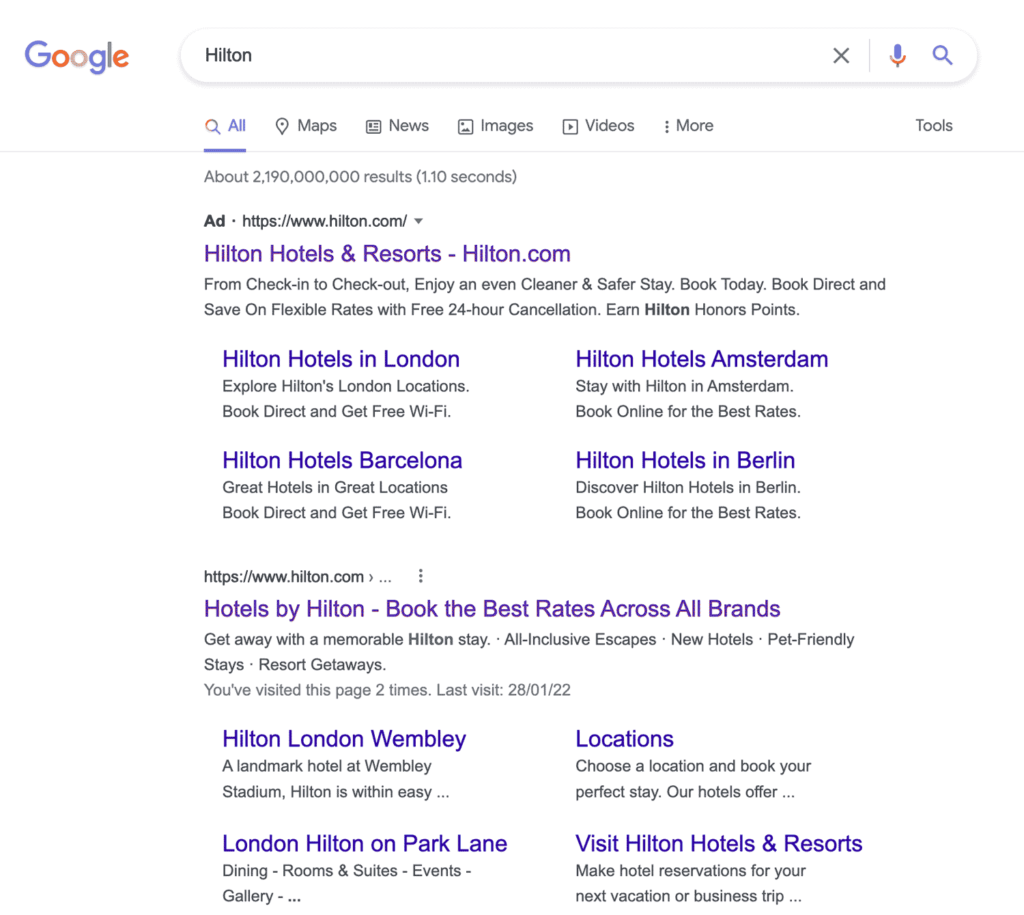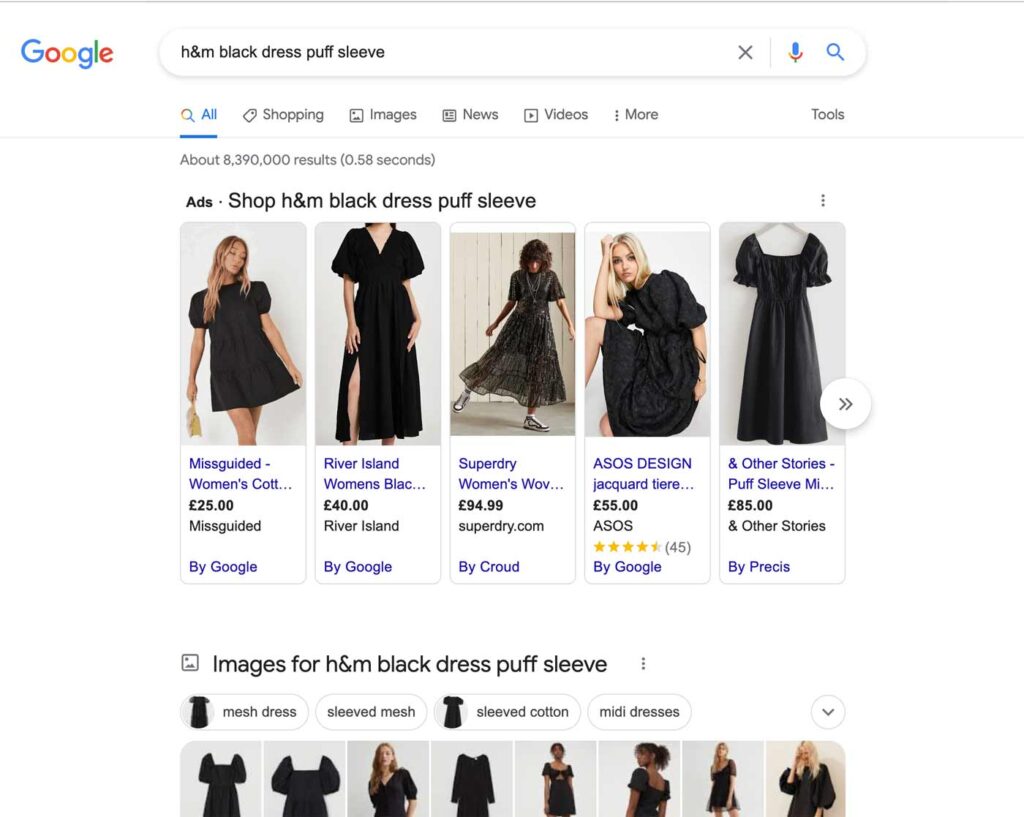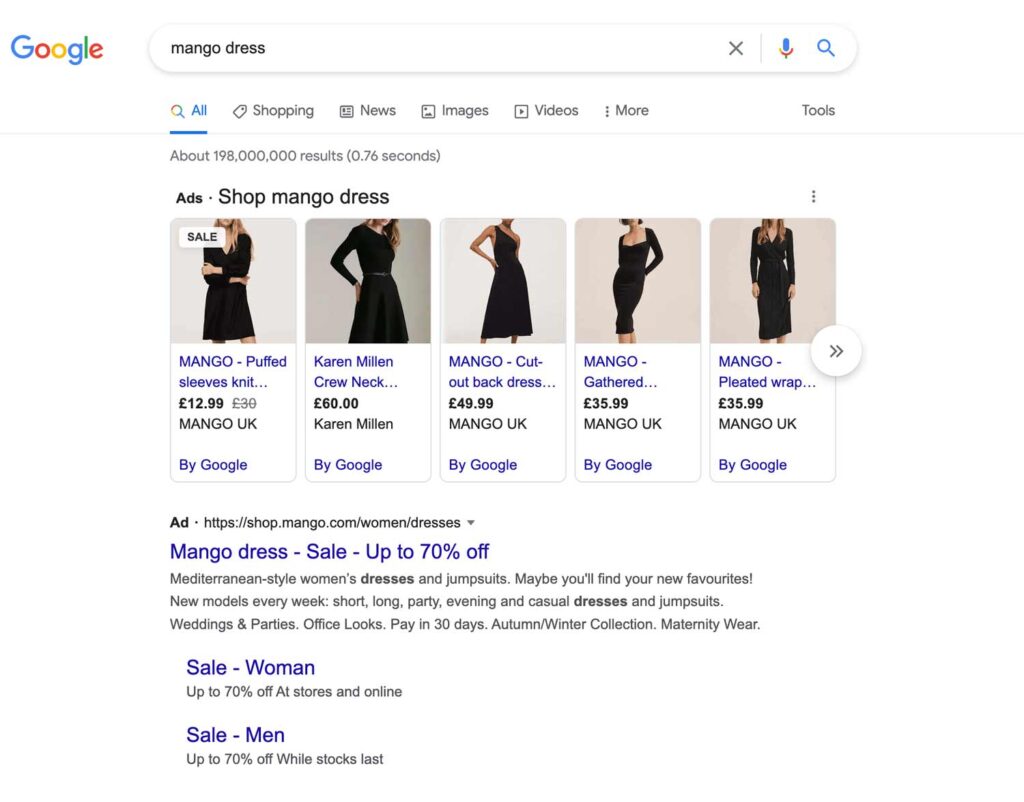
Some companies love their brand campaigns, while others make an effort to block all brand keywords and search terms. Do you really need paid brand keyword campaigns on the search results if your website is ranking in 1st position organically? It really depends. In this article I’m going to look at the pros and cons of bidding for brand keywords in Google Ads. It will hopefully help you decide wether you need them or not.
For the purpose of this article, my definition of brand campaigns are search campaigns with keywords targeting your own brand name. For example, if your business is called MyShop, then your brand campaign would target the keyword: Myshop so that you appear on paid search results for your own name.
To clarify, I won’t be discussing advertising other brand names if you’re a reseller of other brands’ products.

In this example of a brand campaign on Google Ads, Hilton is paying to appear when people search for "Hilton". You can see there are no competitors and their organic listing is right bellow the ad.
There is really just one major downside to brand campaigns. Cost. Paid traffic can be expensive and running brand campaigns is going to cost you. There’s a good chance you’re stealing traffic from your organic listing and having no real effect on the bottomline. Many marketers and business owners consider paying for brand searches a waste of money and they will often be right.
People who search for your company name are likely to already be familiar with your brand and products. If they have searched for you by name they are probably warm prospects.
Ultimately, if we are to justify spending money on campaigns for your own name, it will almost always be because of competition on the search results. Here are some of the pros of running brand campaigns with Google Ads.
Even when you rank first for your name organically, if your name triggers competitor ads then there are likely to be 4 ads and sometimes a map pack above your organic listing.

While a search for "H&M" doesn't trigger any ads, the more specific search for a H&M product does. This is a great opportunity for competitors to sway H&M customers or for H&M to fight to bring their customers to their original intended destination.
You might not have competitors bidding for your name on its own. But it is likely that a search for your name + product / service. Would trigger ads from competitors. If you want to maintain dominance for these searches you have to pay unfortunately.
When your ad appears on the search results, and your organic listing appears below them, you’ve effectively doubled the space your brand is taking on the search results. If competitors also appear on the SERP (search engine results page) then you’ve just decreased their chances of getting attention and clicks.

By bidding on brand keywords, Mango have tripled their space to dominate the search results. They are showing in shopping ads, search ads and the organic listing below.
When you run campaigns for your own name, you’re likely to get the best quality score for your keywords and relevance. This is translated to cheaper costs per click, cheaper costs per acquisition and higher return on ad spend. Even though the brand campaign isn’t increasing your reach to new audiences it is often so profitable that it might just be worth keeping. With some of my clients we get a return on ad spend (ROAS) of 4000% from brand campaigns on Google Ads.
Brand keywords will usually get high quality scores of 8-10. The helps promote general good account health which helps overall performance. I don’t think this is a reason to spend money on brand keywords in itself but it’s an added bonus.
The other important aspect of brand campaigns is that they give you more data and insights into more conversions and buyers through Google Ads. You can get audiences insights by adding observation audiences, demographic, search terms. It can also help Google train its automated bidding algorithms with more conversions and insights in the system. With Google Ads becoming more and more automated by the minute, giving it access to more conversions and data can help speed up machine learning times and reduce costs for acquisition campaigns.
You can use your brand campaigns to test headlines and ad copy which can then be implemented on your organic listing. PPC ads on search are quick and easy to change and you can compare different versions to get the best click through rates (CTRs).
You can also send your brand campaign traffic to different pages and offers and compare the results. Any winning combinations can then be implemented on your organic listings.
If there’s little or no competition for your brand term and you’re constantly ranking 1st for your brand name and brand+product combinations, you probably don’t need to waste your money on brand keywords.
You should monitor search results regularly and also use Google Ads’ preview tool or a VPN to check search results from other locations and devices.
Keep it mind, that it might be worth running a brand campaign at a very low budget just to monitor competition or use a ranking tool to send you weekly or monthly reports on this.
Must is a strong word, let’s say you’d be smart to pay for brand campaigns in the following scenarios.
It’s very likely that your brand campaigns will take a bite from your organic traffic. Ideally, you’d want to measure this. If 100% of your paid brand traffic is cannibalising your organic traffic it’s probably safe to say you don’t need brand campaigns.
One way to test it is by measuring your organic traffic over a period as you start and pause your brand campaigns or make a significant change to your brand campaign budgets.
For example, if you’re spending £100 a day on brand campaigns, look at your organic traffic as you vut your budget to £20 per day for a week or two. How many more clicks did you get organically? How many fewer clicks did you get through PPC? You can use this experiment to evaluate how much of your brand campaign traffic is coming at the expense of your own (free) organic traffic, and how much of it is being saved from the claws of competitors and other websites.
A typical mistake I see on most account that I check is brand search terms appearing on campaigns that aren’t meant to target them. For example, you might be advertising ‘mens coats’ but the acautal search terms that trigger your ads are includ your own brand name. To avoid this, check the search terms report for all campaigns. You can add negative keywords for brand terms to all campaigns or as a negative keywords list. This should help make law and order in your account.

You can easily compare trends in your paid and organic traffic with segments in Google Analytics. In this example, I am using a custom segment in Google analytics to show Google Ads traffic.
Well done for making it so far. Like most things marketing, there’s no one size fits all rule for having or not having brand campaigns. It’s quite easy to take a look at the search results and try to put yourself in the shoes of your potential customer. Are they exposed to a lot of temptations from other brands when searching for your name? If so, you’re probably better off paying a bit more to make sure you dominate your space. It can be frustrating to pay for your own name to appear, but it’s a reality most brands have to live with today.
I'm a senior PPC consultant with over 10 years of Google Ads experience. I manage over £100K monthly spend in PPC accounts marketing real estate, eCommerce, lead generation & more. If you have any questions about Google Ads, PPC, Facebook Ads and conversion tracking shoot me an email and I'll be glad to help. I hope you've found this article useful.
Odi Caspi
PPC consultant & Owner @ EffectiveMarketing.UK, a PPC Agency based in London.
